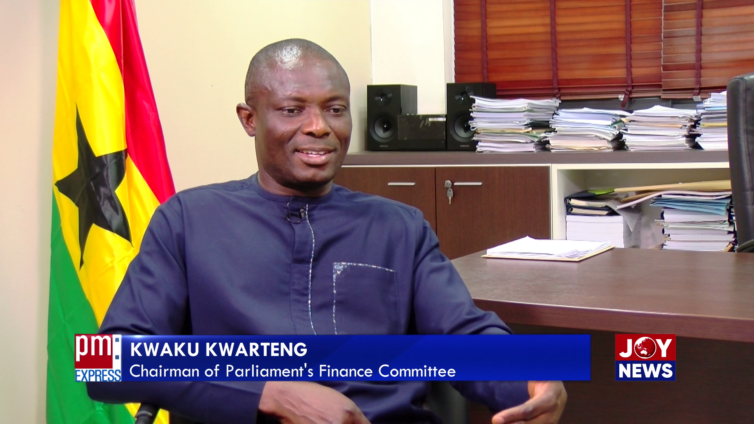The Chairman of the Finance Committee, Kwaku Kwarteng, has attributed the country’s current economic crisis to decades of reckless public expenditure and economic mismanagement.
Acknowledging the adverse impacts of the Covid-19 pandemic and the ongoing Russian war, Mr Kwarteng refuted the notion that these global events were the sole cause of the crisis.
“I am not with the school of thought that we were not going to experience a financial crisis but for these [Covid-19 and Russia-Ukraine War].
“The country was always going to have some financial crisis. It might have been delayed a little bit if Covid-19 and the Russia-Ukraine war had not happened but the fact remains that with the path we were walking, we were definitely going to get here,” he said.
Mr Kwarteng who doubles as MP for Obuasi West made this assertion during an interview on JoyNews’ PM Express on Thursday.
Highlighting a pervasive culture of overspending and a lack of fiscal discipline, Mr Kwarteng also noted that Ghana's current predicament is not solely a result of recent economic management but rather the culmination of decades of bad politics and economic mismanagement.
“Overruns and reckless expenditure have become a culture," he told George Wiafe. A practice, he expressed grave concern.
According to him, unless there is a fundamental change in mindset and a commitment to fiscal responsibility, Ghana risks becoming a failed state.
He therefore called for an honest and straight-forward discussion about these negative cultural practices that have led to the current crisis and find sustainable solutions to them.
The Obuasi West legislator observed that due to the pervasiveness of these negative cultural practices, it makes laws and institutions established to clump down on economic mismanagement ineffective.
“We have the laws and we’ve set up institutions that should help us deal with these, but no amount of legislation, no amount of institutional arrangements can stop a people determined to destroy themselves.”
Mr Kwarteng's remarks come at a critical time as the country grapples with the dual challenges of external shocks and domestic economic vulnerabilities such as skyrocketing inflation rate, high unemployment rate among others.
Latest Stories
-
Congo, M23 rebels plan return to Qatar talks amid Trump pressure
3 hours -
US, Colombia recall their ambassadors in diplomatic tussle
3 hours -
‘It’s a joke’: Peruvians outraged after president doubles her salary
4 hours -
Putin tells Trump he won’t back down from goals in Ukraine, Kremlin says
4 hours -
Boxer Julio Cesar Chavez Jr arrested by US immigration
4 hours -
Over 100 former senior officials warn against planned staff cuts at US State Department
4 hours -
Dagbang overlord bans celebration of 2025 fire festival in Tamale
4 hours -
BBC senior staff told to ‘step back’ from duties following row
4 hours -
North Tongu DCE urges trust in gov’t as flood victims awaits compensation
4 hours -
2 arrested for murder of Lebanese national in East Legon
5 hours -
NSMQ 2025: GSTS clinch Western Regional Championship to book spot at national
5 hours -
New Supreme Court judges pledge fairness, acknowledge family support
5 hours -
Kilmar Ábrego García alleges torture and abuse in El Salvador prison
5 hours -
Gov’t sets up committee to investigate sale of state lands, including those owned by schools
5 hours -
Angélique Kidjo first black African to get Hollywood Walk of Fame star
5 hours

